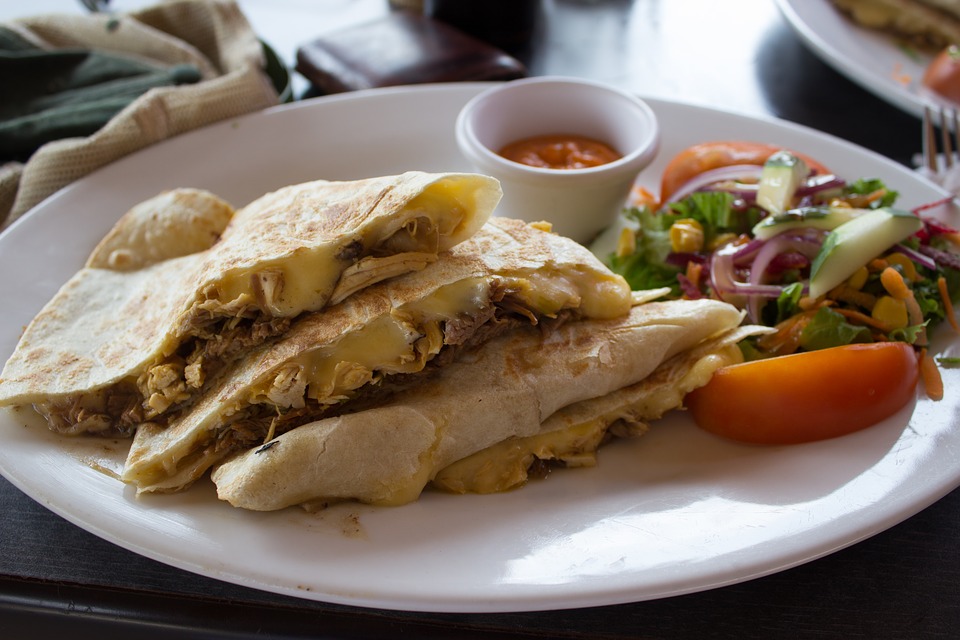Known for its white sandy beaches, biodiverse rainforests, and beautiful mountains and volcanoes, Costa Rica offers plenty of opportunities for outdoor activities that can help expats to keep fit. The country also has an abundance of fresh fruit, vegetables, rice and beans, which are used in many of the local dishes, making Costa Rica a great destination for expats who want to live a healthy lifestyle.
Popular types of food and drink
Costa Rican cuisine is usually simple, full of nutrients, and high in fiber and protein. The country’s national dish is “gallo pinto”, which is stir-fried black beans and rice, often served for breakfast with eggs, sour cream or cheese. However, some Costa Rican food is fried in oil that is high in saturated fat, so expats may want to consider eating fried foods in moderation alongside fresh salads, vegetables and fruits.
Costa Ricans typically eat a lot of soups and stews, which are a good source of nutrients for expats. A real must-try is the “casado”, which is a typical local dish. “Casado” is made of rice, beans, meat (or fish) and plantains, served with a salad made from carrots, tomatoes and cabbage. As well as offering plenty of protein, this dish is high in vitamins and nutrients which can help expats maintain a balanced diet.
There is a wide choice of drinks available such as blended iced fruit drinks, which make a healthy non-alcoholic option for expats, although beer is also popular. Costa Rica is of course famous for its coffee, which is one of the country’s main exports and plays a key role in the economy. The high-grown altitudes mean that Costa Rican coffee has some of the best coffee flavor profiles in Latin America, with the Tarrazu region being one of the most consistent producers of coffee.
Expats can arrange plantation tours through travel operators or direct with the growers, which provides an opportunity to taste the coffee, learn about the growing process and discover more about the country’s culture and history.
Eating customs and habits
Costa Rica has many dining traditions and customs. For example, the host usually sits at the head of the table, with men on their right and women on their left. It is considered polite to wait for the host to say, “enjoy your meal” (“buen provecho”) before you start eating.
Cutlery is used, but the knife is held in the left hand, with the fork in the right (when eating salad, you should use your fork to collect it up, rather than cutting it with a knife). It is also polite to keep your hands (but not elbows) on the table.
If you are invited to eat at someone’s house then the meal will likely consist of simple, healthy ingredients. Expats might want to consider bringing a small gift, such as a bottle of wine, if they are invited to someone’s home.
Food and drink events and festivals
One festival that expats can attend to sample Costa Rica’s fresh produce and local cuisine is Envision. This is a cultural event featuring yoga, art, music, surfing and more. It is held within a rainforest, and the festival showcases local specialties based on the produce growing around it.
There is also the Street Food Festival, which is a smaller event bringing together street food trucks from around the country, offering a wide range of vibrant culinary styles. This can be a useful opportunity for expats to learn about Costa Rican cuisine and discover healthy new dishes.
Cooking styles and ingredients
The simplicity of Costa Rican food means that it is generally quite mild in flavor, and perhaps a little dryer than expats from, for instance, the UK and US are used to (though there are many sauces available to add moisture and flavor to dishes). Costa Ricans also like their meat to be chewy, and it is usually roasted over a wood fire to give it a rich, smoky flavor.
Many of the dishes are served with some sort of corn tortilla wrap or crisp, adding a crunchy texture to soft beans and rice. The cooking styles and simple ingredients make most dishes generally healthy and easy for expats to avoid foods that are high in fats and calories.
Practical considerations
Lunch is typically seen as the main meal of the day in Costa Rica. As such, expats may find that they only receive small portions if they dine with friends or colleagues in the evening. It can take some time to adjust to this custom, as this is different to the eating habits of some Western countries. However, there are natural health benefits to avoiding big meals for dinner, as this stops excess energy from sugars being converted into fat while you sleep.
Common issues expats face
The most common issue for many Western expats to adjust to is the custom of eating with the cutlery the “wrong” way around. Expats who are right-handed may find it takes time to get used to eating with the knife in the left hand.
Another potential problem for those shopping in supermarkets and convenience stores is that the food wrappers are generally written in Spanish. This is also the case for expats eating out at restaurants. Learning some basic Spanish – even if it is just the names of food and styles of cooking e.g. fried, baked, roasted etc. will of course help overcome this hurdle.
Food and drink for expats with health conditions
Expats with high cholesterol may find that the high levels of protein, calcium, niacin and complex carbohydrates in foods like beans and squashes (which are abundant in Costa Rica) can naturally lower cholesterol and lower risk of heart disease.
Although dairy products and nuts are not staples of the Costa Rican diet, expats with allergies and intolerances should still communicate any dietary requirements to their host or waiter when they eat out.
However, this is not a substitute for arranging any necessary medication and consulting with a doctor before relocating. Some expats may have underlying diet-related health conditions which need careful management. As such, having private health insurance in place may help ensure expats ensure they have timely access to the appropriate healthcare and professionals.
Summary
Costa Rica’s natural mix of fresh fruits, nutritious vegetables and high-fiber diet means that expats can easily eat a well-balanced diet, even if they choose to frequently eat out at restaurants rather than at home. The smaller evening meals and nutritious ingredients found in many of the staple dishes can make it easier to maintain their general well-being and a balanced diet.










